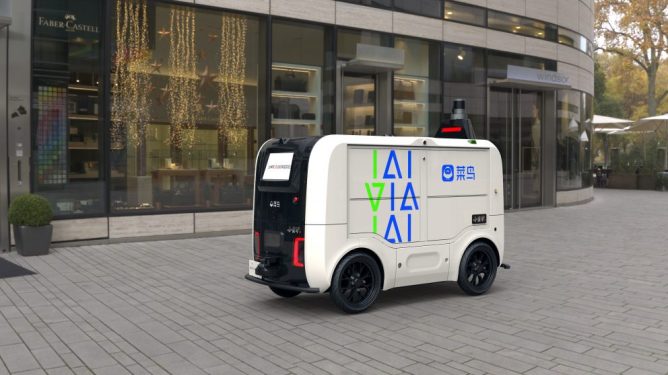Background
In 2017, Alibaba Group founded Damo Academy, a dedicated institution focused on cutting-edge research with minimal short-term financial pressures. The academy was established to foster innovation in areas such as artificial intelligence, autonomous driving, and logistics. Among its 16 specialized labs, one of the most notable is the Autonomous Driving Lab, which has recently made a significant move within Alibaba’s ecosystem.
The Shift: Logic and Strategy
The news that Alibaba’s autonomous vehicle lab will merge into Cainiao, Alibaba’s global logistics network, marks a strategic shift in the company’s approach to monetization. Autonomous driving is notoriously capital-intensive due to its reliance on vast amounts of funding for research and development. Logistics, however, presents an opportunity for Alibaba to begin monetizing this investment without the immediate pressure of generating short-term returns.
Cainiao, already a dominant player in global logistics, operates a network that includes self-driving delivery vans, such as Little Donkey, which has been instrumental in delivering e-commerce, restaurant, and grocery orders. The integration of the autonomous vehicle lab into Cainiao signifies a broader strategy to leverage this technology for last-mile deliveries, a segment that is both capital-light and highly feasible for implementation.
Little Donkey’s Progress
Since its debut in 2018, Little Donkey, Alibaba’s flagship autonomous delivery van, has already achieved remarkable milestones. By June 2022, the self-driving van had completed over 10 million deliveries, surpassing its ambitious target of one million daily by 2025. This success underscores the potential for autonomous driving in logistics and highlights the rapid pace at which Alibaba is integrating cutting-edge technology into its operations.
The company’s projection indicates that Little Donkey could soon become a key player in Cainiao’s logistics ecosystem, further solidifying its position as a leader in global supply chain management. The integration of the autonomous vehicle lab into Cainiao aligns with Alibaba’s broader vision of transforming logistics from a traditional industry into a dynamic and innovative sector.
Scaling and Global Impact
As Alibaba continues to expand its reach, the integration of its autonomous driving research into Cainiao opens up new opportunities for global logistics expansion. With Cainiao already operating in multiple countries, the company is well-positioned to benefit from the technological advancements being developed at Damo Academy. This partnership not only enhances Cainiao’s operational efficiency but also accelerates Alibaba’s push into global markets.
The move reflects a broader strategy by Alibaba to diversify its business models and reduce reliance on traditional industries that are increasingly impacted by automation and technology. By focusing on autonomous driving and logistics, Alibaba aims to maintain its competitive edge in an increasingly dynamic market landscape.
Key Takeaways
Alibaba’s strategic shift from foundational research to operational integration demonstrates a clear understanding of the opportunities within emerging technologies like autonomous driving. The move into Cainiao not only enhances Cainiao‘s logistical capabilities but also positions Alibaba as a leader in the global logistics industry. As the company continues to expand its research and innovation efforts, it signals a forward-thinking approach that aligns with its long-term goals of transforming logistics from an outdated sector into a future-ready industry.
This pivot underscores Alibaba’s commitment to leveraging cutting-edge technology to drive operational efficiency and market leadership, ensuring its position as a global tech giant in the years to come.







